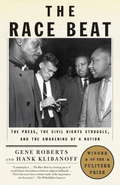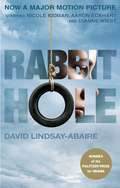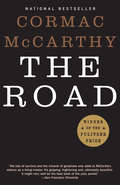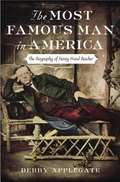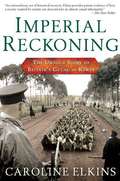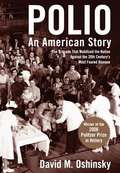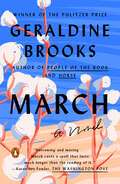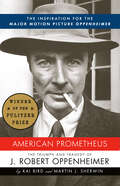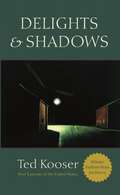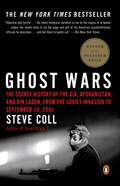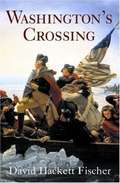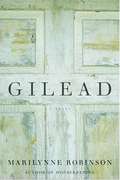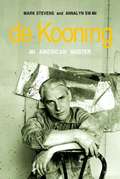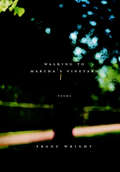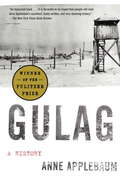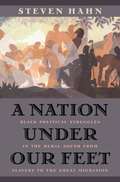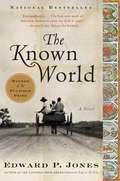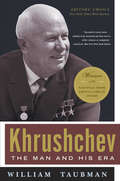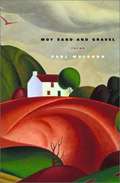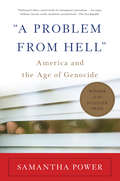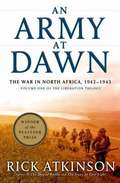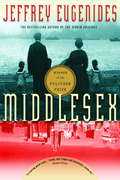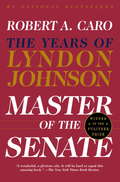Special Collections
Pulitzer Prize Award Winners
Description: Bookshare is pleased to offer the following titles, winners of the Pulitzer Prize Award. Note: Some drama winners are available and are listed under Fiction awards. #award
- Table View
- List View
The Race Beat
by Gene Roberts and Hank KlibanoffAn unprecedented examination of how news stories, editorials and photographs in the American press—and the journalists responsible for them—profoundly changed the nation’s thinking about civil rights in the South during the 1950s and ‘60s.
Roberts and Klibanoff draw on private correspondence, notes from secret meetings, unpublished articles, and interviews to show how a dedicated cadre of newsmen—black and white—revealed to a nation its most shameful shortcomings that compelled its citizens to act. Meticulously researched and vividly rendered, The Race Beat is an extraordinary account of one of the most calamitous periods in our nation’s history, as told by those who covered it.
Pulitzer Prize Winner
Rabbit Hole (movie tie-in)
by David Lindsay-AbaireMovie tie-in edition of the film from Lions Gate starring Nicole Kidman, Aaron Eckhart and Dianne Wiest. Life for a happy couple is turned upside down after their young son dies in an accident.
The Road
by Cormac MccarthyThe searing, postapocalyptic novel destined to become Cormac McCarthy's masterpiece.
A father and his son walk alone through burned America. Nothing moves in the ravaged landscape save the ash on the wind. It is cold enough to crack stones, and when the snow falls it is gray. The sky is dark. Their destination is the coast, although they don't know what, if anything, awaits them there. They have nothing; just a pistol to defend themselves against the lawless bands that stalk the road, the clothes they are wearing, a cart of scavenged food--and each other.
The Road is the profoundly moving story of a journey. It boldly imagines a future in which no hope remains, but in which the father and his son, "each the other's world entire," are sustained by love. Awesome in the totality of its vision, it is an unflinching meditation on the worst and the best that we are capable of: ultimate destructiveness, desperate tenacity, and the tenderness that keeps two people alive in the face of total devastation.
Pulitzer Prize Winner
The Most Famous Man in America
by Debby ApplegateNo one predicted success for Henry Ward Beecher at his birth in 1813. The blithe, boisterous son of the last great Puritan minister, he seemed destined to be overshadowed by his brilliant siblings—especially his sister, Harriet Beecher Stowe, who penned the century’s bestselling book Uncle Tom’s Cabin. But when pushed into the ministry, the charismatic Beecher found international fame by shedding his father Lyman's Old Testament–style fire-and-brimstone theology and instead preaching a New Testament–based gospel of unconditional love and healing, becoming one of the founding fathers of modern American Christianity. By the 1850s, his spectacular sermons at Plymouth Church in Brooklyn Heights had made him New York’s number one tourist attraction, so wildly popular that the ferries from Manhattan to Brooklyn were dubbed “Beecher Boats.”
Beecher inserted himself into nearly every important drama of the era—among them the antislavery and women’s suffrage movements, the rise of the entertainment industry and tabloid press, and controversies ranging from Darwinian evolution to presidential politics. He was notorious for his irreverent humor and melodramatic gestures, such as auctioning slaves to freedom in his pulpit and shipping rifles—nicknamed “Beecher’s Bibles”—to the antislavery resistance fighters in Kansas. Thinkers such as Emerson, Thoreau, Whitman, and Twain befriended—and sometimes parodied—him.
And then it all fell apart. In 1872 Beecher was accused by feminist firebrand Victoria Woodhull of adultery with one of his most pious parishioners. Suddenly the “Gospel of Love” seemed to rationalize a life of lust. The cuckolded husband brought charges of “criminal conversation” in a salacious trial that became the most widely covered event of the century, garnering more newspaper headlines than the entire Civil War. Beecher survived, but his reputation and his causes—from women’s rights to progressive evangelicalism—suffered devastating setbacks that echo to this day.
Featuring the page-turning suspense of a novel and dramatic new historical evidence, Debby Applegate has written the definitive biography of this captivating, mercurial, and sometimes infuriating figure. In our own time, when religion and politics are again colliding and adultery in high places still commands headlines, Beecher’s story sheds new light on the culture and conflicts of contemporary America.
Pulitzer Prize Winner
Late Wife
by Claudia EmersonIn Late Wife, a woman explores her disappearance from one life and reappearance in another as she addresses her former husband, herself, and her new husband in a series of epistolary poems. Though not satisfied in her first marriage, she laments vanishing from the life she and her husband shared for years. She then describes the unexpected joys of solitude during her recovery and emotional convalescence. Finally, in a sequence of sonnets, she speaks to her new husband, whose first wife died from lung cancer. The poems highlight how rebeginning in this relationship has come about in part because of two couples' respective losses. The most personal of Claudia Emerson's poetry collections, Late Wife is both an elegy and a celebration of a rich present informed by a complex past.
Pulitzer Prize Winner
Imperial Reckoning
by Caroline ElkinsAs part of the Allied forces, thousands of Kenyans fought alongside the British in World War II. But just a few years after the defeat of Hitler, the British colonial government detained nearly the entire population of Kenya's largest ethnic minority, the Kikuyusome one and a half million people. The system of prisons and work camps where thousands met their deaths was the result of a determined effort by the British to destroy all official records of their attempts to stop the Mau Mau uprising. Caroline Elkins spent a decade in London, Nairobi, and the Kenyan countryside interviewing hundreds of survivors of the camps and the British and African loyalists who detained them. The result is an account of the unraveling of the British colonial empire in Kenya - a pivotal moment in twentieth-century history with chilling parallels to America's own imperial project.
Pulitzer Prize Winner
Polio
by David M. OshinskyAll who lived in the early 1950s remember the fear of polio and the elation felt when a successful vaccine was found. Now David Oshinsky tells the gripping story of the polio terror and of the intense effort to find a cure, from the March of Dimes to the discovery of the Salk and Sabin vaccines - and beyond. Here is a remarkable portrait of America in the early 1950s, using the widespread panic over polio to shed light on our national obsessions and fears. Drawing on newly available papers of Jonas Salk, Albert Sabin and other key players, Oshinsky paints a suspenseful portrait of the race for the cure, weaving a dramatic tale centered on the furious rivalry between Salk and Sabin. Indeed, the competition was marked by a deep-seated ill will among the researchers that remained with them until their deaths. The author also tells the story of Isabel Morgan, perhaps the most talented of all polio researchers, who might have beaten Salk to the prize if she had not retired to raise a family. As backdrop to this feverish research, Oshinsky offers an insightful look at the National Foundation for Infantile Paralysis, which was founded in the 1930s by FDR and Basil O'Connor. The National Foundation revolutionized fundraising and the perception of disease in America, using "poster children" and the famous March of Dimes to raise hundreds of millions of dollars from a vast army of contributors (instead of a few well-heeled benefactors), creating the largest researchand rehabilitation network in the history of medicine. The polio experience also revolutionized the way in which the government licensed and tested new drugs before allowing them on the market, and the way in which the legal system dealt with manufacturers' liability for unsafe products. Finally, and perhaps most tellingly, Oshinsky reveals that polio was never the raging epidemic portrayed by the media, but in truth a relatively uncommon disease. But in baby-booming America - increasingly suburban, family-oriented, and hygiene-obsessed - the specter of polio, like the specter of the atomic bomb, soon became a cloud of terror over daily life. Both a gripping scientific suspense story and a provocative social and cultural history, Polio opens a fresh window onto postwar America.
Pulitzer Prize Winner
March
by Geraldine BrooksFrom Louisa May Alcott's beloved classic Little Women, Geraldine Brooks has animated the character of the absent father, March, and crafted a story "filled with the ache of love and marriage and with the power of war upon the mind and heart of one unforgettable man" (Sue Monk Kidd). With "pitch-perfect writing" (USA Today), Brooks follows March as he leaves behind his family to aid the Union cause in the Civil War. His experiences will utterly change his marriage and challenge his most ardently held beliefs.
Pulitzer Prize Winner
American Prometheus
by Kai Bird and Martin J. SherwinTHE INSPIRATION FOR THE MAJOR MOTION PICTURE OPPENHEIMER • "A riveting account of one of history&’s most essential and paradoxical figures.&”—Christopher Nolan#1 NEW YORK TIMES BESTSELLER • PULITZER PRIZE WINNER • The definitive biography of J. Robert Oppenheimer, one of the iconic figures of the twentieth century, a brilliant physicist who led the effort to build the atomic bomb for his country in a time of war, and who later found himself confronting the moral consequences of scientific progress.In this magisterial, acclaimed biography twenty-five years in the making, Kai Bird and Martin Sherwin capture Oppenheimer&’s life and times, from his early career to his central role in the Cold War. This is biography and history at its finest, riveting and deeply informative.&“A masterful account of Oppenheimer&’s rise and fall, set in the context of the turbulent decades of America&’s own transformation. It is a tour de force.&” —Los Angeles Times Book Review&“A work of voluminous scholarship and lucid insight, unifying its multifaceted portrait with a keen grasp of Oppenheimer&’s essential nature.... It succeeds in deeply fathoming his most damaging, self-contradictory behavior.&” —The New York Times
Delights and Shadows
by Ted KooserTed Kooser is a master of metaphor, a poet who deftly connects disparate elements of the world and communicates with absolute precision. Critics call him a “haiku-like imagist” and his poems have been compared to Chekov’s short stories. In Delights and Shadows, Kooser draws inspiration from the overlooked details of daily life. Quotidian objects like a pegboard, creamed corn and a forgotten salesman’s trophy help reveal the remarkable in what before was a merely ordinary world.
Ted Kooser is the author of eight collections of poems and a prose memoir. He lives on a small farm in rural Nebraska.
Pulitzer Prize Winner
Ghost Wars
by Steve CollWinner of the 2005 Pulitzer PrizeThe explosive first-hand account of America's secret history in AfghanistanWith the publication of Ghost Wars, Steve Coll became not only a Pulitzer Prize winner, but also the expert on the rise of the Taliban, the emergence of Bin Laden, and the secret efforts by CIA officers and their agents to capture or kill Bin Laden in Afghanistan after 1998.
Washington's Crossing
by David Hackett FischerSix months after the Declaration of Independence, the American Revolution was all but lost. A powerful British force had routed the Americans at New York, occupied three colonies, and advanced within sight of Philadelphia.
Yet, as David Hackett Fischer recounts in this riveting history, George Washington--and many other Americans--refused to let the Revolution die. On Christmas night, as a howling nor'easter struck the Delaware Valley, he led his men across the river and attacked the exhausted Hessian garrison at Trenton, killing or capturing nearly a thousand men. A second battle of Trenton followed within days. The Americans held off a counterattack by Lord Cornwallis's best troops, then were almost trapped by the British force. Under cover of night, Washington's men stole behind the enemy and struck them again, defeating a brigade at Princeton. The British were badly shaken. In twelve weeks of winter fighting, their army suffered severe damage, their hold on New Jersey was broken, and their strategy was ruined.
Fischer's richly textured narrative reveals the crucial role of contingency in these events. We see how the campaign unfolded in a sequence of difficult choices by many actors, from generals to civilians, on both sides. While British and German forces remained rigid and hierarchical, Americans evolved an open and flexible system that was fundamental to their success. The startling success of Washington and his compatriots not only saved the faltering American Revolution, but helped to give it new meaning.
Pulitzer Prize Winner
Gilead
by Marilynne RobinsonIn 1956, toward the end of Reverend John Ames's life, he begins a letter to his young son, an account of himself and his forebears. Ames is the son of an Iowan preacher and the grandson of a minister who, as a young man in Maine, saw a vision of Christ bound in chains and came west to Kansas to fight for abolition: He "preached men into the Civil War," then, at age fifty, became a chaplain in the Union Army, losing his right eye in battle.
Reverend Ames writes to his son about the tension between his father--an ardent pacifist--and his grandfather, whose pistol and bloody shirts, concealed in an army blanket, may be relics from the fight between the abolitionists and those settlers who wanted to vote Kansas into the union as a slave state. And he tells a story of the sacred bonds between fathers and sons, which are tested in his tender and strained relationship with his namesake, John Ames Boughton, his best friend's wayward son.
This is also the tale of another remarkable vision--not a corporeal vision of God but the vision of life as a wondrously strange creation. It tells how wisdom was forged in Ames's soul during his solitary life, and how history lives through generations, pervasively present even when betrayed and forgotten.
Pulitzer Prize Winner
De Kooning
by Mark Stevens and Annalyn SwanWillem de Kooning is one of the most important artists of the twentieth century, a true “painter’s painter” whose protean work continues to inspire many artists. In the thirties and forties, along with Arshile Gorky and Jackson Pollock, he became a key figure in the revolutionary American movement of abstract expressionism. Of all the painters in that group, he worked the longest and was the most prolific, creating powerful, startling images well into the 1980s. The first major biography of de Kooning captures both the life and work of this complex, romantic figure in American culture. Ten years in the making, and based on previously unseen letters and documents as well as on hundreds of interviews, this is a fresh, richly detailed, and masterful portrait. The young de Kooning overcame an unstable, impoverished, and often violent early family life to enter the Academie in Rotterdam, where he learned both classic art and guild techniques. Arriving in New York as a stowaway from Holland in 1926, he underwent a long struggle to become a painter and an American, developing a passionate friendship with his fellow immigrant Arshile Gorky, who was both a mentor and an inspiration. During the Depression, de Kooning emerged as a central figure in the bohemian world of downtown New York, surviving by doing commercial work and painting murals for the WPA. His first show at the Egan Gallery in 1948 was a revelation. Soon, the critics Harold Rosenberg and Thomas Hess were championing his work, and de Kooning took his place as the charismatic leader of the New York school—just as American art began to dominate the international scene.
Dashingly handsome and treated like a movie star on the streets of downtown New York, de Kooning had a tumultuous marriage to Elaine de Kooning, herself a fascinating character of the period. At the height of his fame, he spent his days painting powerful abstractions and intense, disturbing pictures of the female figure—and his nights living on the edge, drinking, womanizing, and talking at the Cedar bar with such friends as Franz Kline and Frank O’Hara. By the 1960s, exhausted by the feverish art world, he retreated to the Springs on Long Island, where he painted an extraordinary series of lush pastorals. In the 1980s, as he slowly declined into what was almost certainly Alzheimer’s, he created a vast body of haunting and ethereal late work.
This is an authoritative and brilliant exploration of the art, life, and world of an American master.
Pulitzer Prize Winner
Walking to Martha's Vineyard
by Franz WrightIn this radiant new collection, Franz Wright shares his regard for life in all its forms and his belief in the promise of blessing and renewal. As he watches the “Resurrection of the little apple tree outside / my window,” he shakes off his fear of mortality, concluding “what death . . . There is only / mine / or yours,– / but the world / will be filled with the living. ” In prayerlike poems he invokes the one “who spoke the world / into being” and celebrates a dazzling universe–snowflakes descending at nightfall, the intense yellow petals of the September sunflower, the planet adrift in a blizzard of stars, the simple mystery of loving other people. As Wright overcomes a natural tendency toward loneliness and isolation, he gives voice to his hope for “the only animal that commits suicide,” and, to our deep pleasure, he arrives at a place of gratitude that is grounded in the earth and its moods.
Gulag
by Anne ApplebaumThe Gulag--the vast array of Soviet concentration camps--was a system of repression and punishment whose rationalized evil and institutionalized inhumanity were rivaled only by the Holocaust. The Gulag entered the world's historical consciousness in 1972, with the publication of Alexander Solzhenitsyn's epic oral history of the Soviet camps, The Gulag Archipelago. Since the collapse of the Soviet Union, dozens of memoirs and new studies covering aspects of that system have been published in Russia and the West. Using these new resources as well as her own original historical research, Anne Applebaum has now undertaken, for the first time, a fully documented history of the Soviet camp system, from its origins in the Russian Revolution to its collapse in the era of glasnost. It is an epic feat of investigation and moral reckoning that places the Gulag where it belongs: at the center of our understanding of the troubled history of the twentieth century. Anne Applebaum first lays out the chronological history of the camps and the logic behind their creation, enlargement, and maintenance. The Gulag was first put in place in 1918 after the Russian Revolution. In 1929, Stalin personally decided to expand the camp system, both to use forced labor to accelerate Soviet industrialization and to exploit the natural resources of the country's barely habitable far northern regions. By the end of the 1930s, labor camps could be found in all twelve of the Soviet Union's time zones. The system continued to expand throughout the war years, reaching its height only in the early 1950s. From 1929 until the death of Stalin in 1953, some 18 million people passed through this massive system. Of these 18 million, it is estimated that 4.5 million never returned. But the Gulag was not just an economic institution. It also became, over time, a country within a country, almost a separate civilization, with its own laws, customs, literature, folklore, slang, and morality. Topic by topic, Anne Applebaum also examines how life was lived within this shadow country: how prisoners worked, how they ate, where they lived, how they died, how they survived. She examines their guards and their jailers, the horrors of transportation in empty cattle cars, the strange nature of Soviet arrests and trials, the impact of World War II, the relations between different national and religious groups, and the escapes, as well as the extraordinary rebellions that took place in the 1950s. She concludes by examining the disturbing question why the Gulag has remained relatively obscure, in the historical memory of both the former Soviet Union and the West. Gulag: A History will immediately be recognized as a landmark work of historical scholarship and an indelible contribution to the complex, ongoing, necessary quest for truth.
Pulitzer Prize Winner
A Nation under Our Feet
by Steven HahnThis is the epic story of how African-Americans, in the six decades after their release from slavery, transformed themselves into a political people- an embryonic black nation.
Pulitzer Prize Winner
The Known World
by Edward JonesThe Known World tells the story of Henry Townsend, a black farmer and former slave who falls under the tutelage of William Robbins, the most powerful man in Manchester County, Virginia. Making certain he never circumvents the law, Townsend runs his affairs with unusual discipline. But when death takes him unexpectedly, his widow, Caldonia, can't uphold the estate's order, and chaos ensues. Jones has woven a footnote of history into an epic that takes an unflinching look at slavery in all its moral complexities.
Winner of the 2004 Pulitzer Prize for fiction and the 2003 National Book Critics Circle Award for Fiction. Finalist for the 2003 National Book Award for Fiction.
Khrushchev
by William TaubmanThe definitive biography of the mercurial Soviet leader who succeeded and denounced Stalin. Nikita Khrushchev was one of the most complex and important political figures of the twentieth century. Ruler of the Soviet Union during the first decade after Stalin's death, Khrushchev left a contradictory stamp on his country and on the world. His life and career mirror the Soviet experience: revolution, civil war, famine, collectivization, industrialization, terror, world war, cold war, Stalinism, post-Stalinism. Complicit in terrible Stalinist crimes, Khrushchev nevertheless retained his humanity: his daring attempt to reform communism prepared the ground for its eventual collapse; and his awkward efforts to ease the cold war triggered its most dangerous crises.
This is the first comprehensive biography of Khrushchev and the first of any Soviet leader to reflect the full range of sources that have become available since the USSR collapsed. Combining a page-turning historical narrative with penetrating political and psychological analysis, this book brims with the life and excitement of a man whose story personified his era.
Pulitzer Prize Winner
Moy Sand and Gravel
by Paul MuldoonPaul Muldoon's ninth collection of poems, his first since 1998, finds him working a rich vein that extends from the rivery, apple-heavy County Armagh of the 1950s, in which he was brought up, to suburban New Jersey, on the banks of a canal dug by Irish navvies, where he now lives. Grounded, glistening, as gritty as they are graceful, these poems seem capable of taking in almost anything, and anybody, be it a Tuareg glimpsed on the Irish border, Bessie Smith, Marilyn Monroe, Queen Elizabeth I, a hunted hare, William Tell, William Butler Yeats, Sitting Bull, Ted Hughes, an otter, a fox, Mr. and Mrs. Stanley Joscelyne, an unearthed pit pony, a loaf of bread, an outhouse, a killdeer, Oscar Wilde, or a flock of redknots. At the heart of the book is an elegy for a miscarried child, and that elegiac tone predominates, particularly in the elegant remaking of Yeats's "A Prayer for My Daughter" with which the book concludes, where a welter of traffic signs and slogans, along with the spirits of admen, hardware storekeepers, flimflammers, fixers, and other forebears, are borne along by a hurricane-swollen canal, and private grief coincides with some of the gravest matter of our age.
Pulitzer Prize for Poetry 2003.
A Problem From Hell
by Samantha PowerIn 1993, as a 23-year-old correspondent covering the wars in the Balkans, I was initially comforted by the roar of NATO planes flying overhead.
President Clinton and other western leaders had sent the planes to monitor the Bosnian war, which had killed almost 200,000 civilians. But it soon became clear that NATO was unwilling to target those engaged in brutal "ethnic cleansing. " American statesmen described Bosnia as "a problem from hell," and for three and a half years refused to invest the diplomatic and military capital needed to stop the murder of innocents.
In Rwanda, around the same time, some 800,000 Tutsi and opposition Hutu were exterminated in the swiftest killing spree of the twentieth century. Again, the United States failed to intervene. This time U. S. policy-makers avoided labeling events "genocide" and spearheaded the withdrawal of UN peacekeepers stationed in Rwanda who might have stopped the massacres underway.
Whatever America's commitment to Holocaust remembrance (embodied in the presence of the Holocaust Museum on the Mall in Washington, D. C. ), the United States has never intervened to stop genocide. This book is an effort to understand why.
While the history of America's response to genocide is not an uplifting one, "A Problem from Hell" tells the stories of countless Americans who took seriously the slogan of "never again" and tried to secure American intervention. Only by understanding the reasons for their small successes and colossal failures can we understand what we as a country, and we as citizens, could have done to stop the most savage crimes of the last century. -Samantha
Pulitzer Prize Winner
An Army at Dawn
by Rick AtkinsonThe liberation of Europe and the destruction of the Third Reich is a story of courage and enduring triumph, of calamity and miscalculation. In this first volume of the Liberation Trilogy, Rick Atkinson shows why no modern reader can understand the ultimate victory of the Allied powers without a grasp of the great drama that unfolded in North Africa in 1942 and 1943. That first year of the Allied war was a pivotal point in American history, the moment when the United States began to act like a great power.
Beginning with the daring amphibious invasion in November 1942, An Army at Dawn follows the American and British armies as they fight the French in Morocco and Algeria, and then take on the Germans and Italians in Tunisia. Battle by battle, an inexperienced and sometimes poorly led army gradually becomes a superb fighting force. Central to the tale are the extraordinary but fallible commanders who come to dominate the battlefield: Eisenhower, Patton, Bradley, Montgomery, and Rommel.
Brilliantly researched, rich with new material and vivid insights, Atkinson's narrative provides the definitive history of the war in North Africa.
Pulitzer Prize Winner
Middlesex
by Jeffrey EugenidesSpanning eight decades and chronicling the wild ride of a Greek-American family through the vicissitudes of the twentieth century, Jeffrey Eugenides' witty, exuberant novel on one level tells a traditional story about three generations of a fantastic, absurd, lovable immigrant family -- blessed and cursed with generous doses of tragedy and high comedy.But there's a provocative twist. Cal, the narrator -- also Callie -- is a hermaphrodite. And the explanation for this takes us spooling back in time, through a breathtaking review of the twentieth century, to 1922, when the Turks sacked Smyrna and Callie's grandparents fled for their lives. Back to a tiny village in Asia Minor where two lovers, and one rare genetic mutation, set our narrator's life in motion.Middlesex is a grand, utterly original fable of crossed bloodlines, the intricacies of gender, and the deep, untidy promptings of desire. It's a brilliant exploration of divided people, divided families, divided cities and nations -- the connected halves that make up ourselves and our world. Justly acclaimed when it was released in Fall 2002, it announces the arrival of a major writer for our times.From the Hardcover edition.
Anna in the Tropics
by Nilo CruzWinner of the 2003 Pulitizer Prize for Drama. . . there are many kinds of light.The light of fires. The light of stars.The light that reflects off rivers.Light that penetrates through cracks.Then there's the type of light that reflects off the skin.--Nilo Cruz, Anna in the TropicsThis lush romantic drama depicts a family of cigar makers whose loves and lives are played out against the backdrop of America in the midst of the Depression. Set in Ybor City (Tampa) in 1930, Cruz imagines the catalytic effect the arrival of a new "lector" (who reads Tolstoy's Anna Karenina to the workers as they toil in the cigar factory) has on a Cuban-American family. Cruz celebrates the search for identity in a new land."The words of Nilo Cruz waft from the stage like a scented breeze. They sparkle and prickle and swirl, enveloping those who listen in both specific place and time . . . and in timeless passions that touch us all. In Anna in the Tropics, the world premiere work he created for Coral Gables' intimate New Theatre, Cruz claims his place as a storyteller of intricate craftsmanship and poetic power."--Miami HeraldNilo Cruz is a young Cuban-American playwright whose work has been produced widely around the United States including the Public Theater (New York, NY), South Coast Repertory (Costa Mesa, CA), Magic Theatre (San Francisco, CA), Oregon Shakespeare Festival, McCarter Theater (Princeton, NJ) and New Theatre (Coral Gables, FL). His other plays include Night Train to Bolina, Two Sisters and a Piano, Hortensia and the Museum of Dreams, among others. Anna in the Tropics also won the Steinberg Award for Best New Play. Mr. Cruz teaches playwriting at Yale University and lives in New York City.
Master of the Senate
by Robert A. CaroThe most riveting political biography of our time, Robert A. Caro's life of Lyndon B. Johnson, continues. Master of the Senate takes Johnson's story through one of its most remarkable periods: his twelve years, from 1949 through 1960, in the United States Senate. Once the most august and revered body in politics, by the time Johnson arrived the Senate had become a parody of itself and an obstacle that for decades had blocked desperately needed liberal legislation. Caro shows how Johnson's brilliance, charm, and ruthlessness enabled him to become the youngest and most powerful Majority Leader in history and how he used his incomparable legislative genius--seducing both Northern liberals and Southern conservatives--to pass the first Civil Rights legislation since Reconstruction. Brilliantly weaving rich detail into a gripping narrative, Caro gives us both a galvanizing portrait of Johnson himself and a definitive and revelatory study of the workings of legislative power.
Winner of the National Book Award
Winner of the Pulitzer Prize
